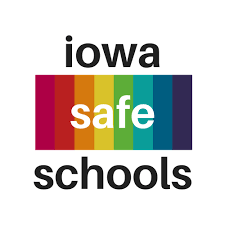COVID-19 and the workplace: 3 takeaways from panel discussion

KATHY A. BOLTEN Mar 12, 2020 | 8:53 pm
2 min read time
536 wordsAll Latest News, Coronavirus, Health and WellnessThis week, the Business Record held a Newsroom 515 panel discussion on legal issues. Among the topics discussed was the coronavirus and how it is affecting the workplace. The following are three key takeaways from the discussion:
Plan, plan, plan
Iowa floods in recent years have prompted employers to develop emergency plans, said Kelsey Knowles, an attorney with Belin McCormick law firm in Des Moines. “All employers really should have that sort of plan in place.”
The time to develop those plans is when there’s not an emergency occurring, she said.
Significant changes occurred in the workplace since the employers in downtown Des Moines and elsewhere faced an emergency situation, said Jo Ellen Whitney, an attorney with the Davis Brown law firm in Des Moines. For instance, an increased number of employees work remotely and concerns about COVID-19 could cause an even greater number of people to work from home, she said.
“There’s a lot of things attached to that, like ‘How do you pay people? How do you track their time? How do you keep data secure when you’re accessing it from a remote place?’” she said. Whitney said those are pieces of company’s emergency plans that typically get overlooked.
In addition, companies need to have the right infrastructure in place to allow dozens, if not hundreds, of employees to work remotely, Whitney said.
“Do I have 150 [laptop] computers? Do I have the bandwidth to let 150 people log into my system?” she said. All of those issues need explored, she said.
Establish pay policy
Some employees undoubtedly will get exposed to COVID-19 in the workplace. Or, they may get ill from the common cold or influenza and think they have the coronavirus, Whitney said.
“We’ve had people ask, ‘Do we pay people?’” Whitney said. “One of the things they are worried about is opening the door to paying everybody who gets exposed to a cold or the flu or anything else in the workplace. … What we’ve been telling them is that I think this is a unique situation.”
Employers should tell their workers that the decisions made today maybe not be the same one that is made six months from now, Whitney said. “You have to tell your people that ‘We are continuing to monitor the situation, and these policies may change as the situation changes.’”
No testing of employees. Yet.
The Equal Employment Opportunity Commission, or EEOC, has guidelines for business practices during a pandemic situation.
But the guidelines don’t apply to all businesses equally, Knowles said.
At some point, nursing homes or medical facilities may be able to take the temperature of workers because “it’s a business necessity,” Knowles said. “But what might be a business necessity for a nursing home may not be a business necessity for a law firm.”
In general, employers cannot take the temperatures of their workers, or ask them if they have COVID-19 or whether they have any underlying medical conditions such as cancer or heart disease.
“You can’t ask those sorts of questions. I think there is a danger in this situation that we care so much about protecting our employees and keeping them safe that employers potentially can cross the line,” Knowles said.









